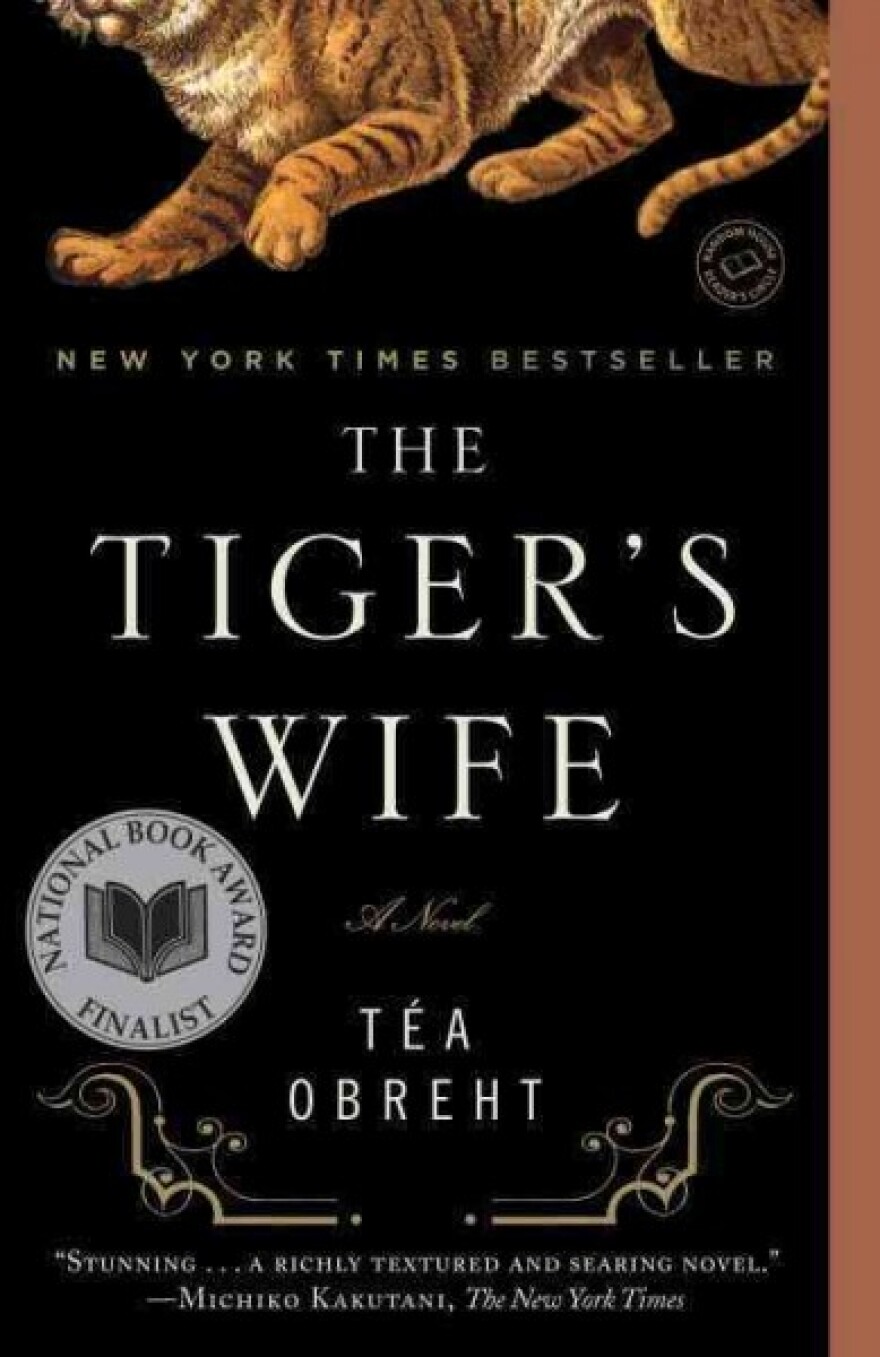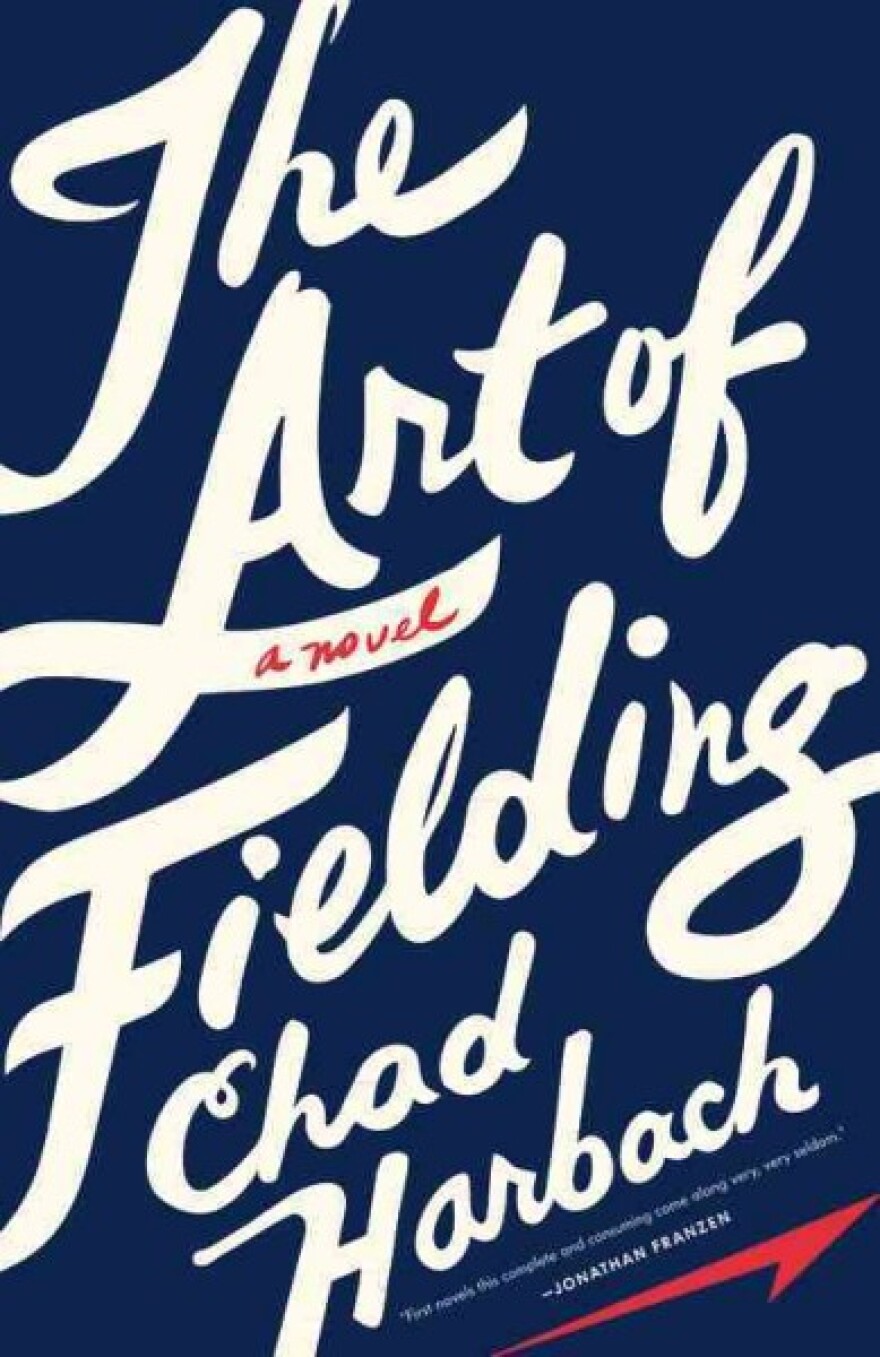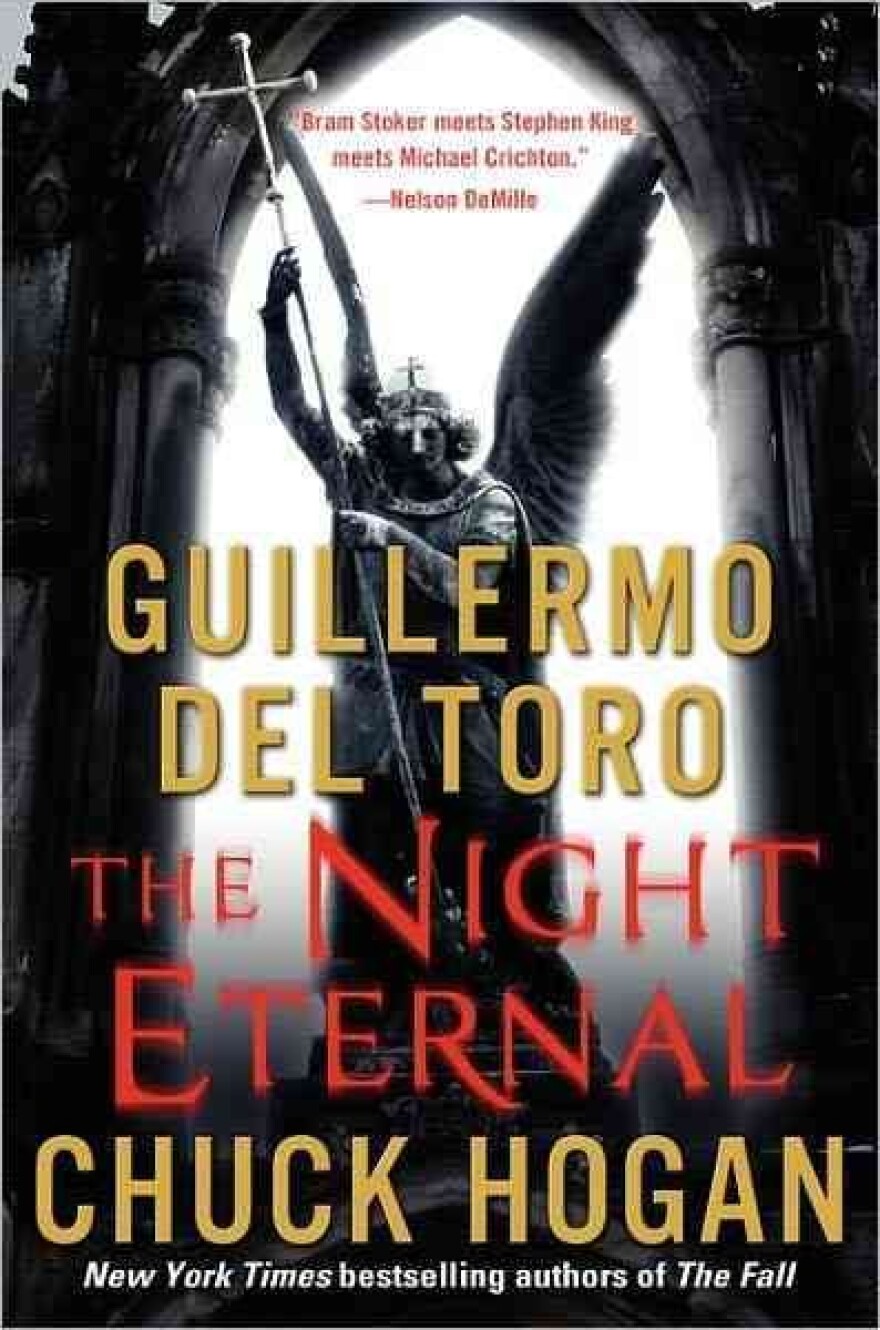This is always a promising season for readers. As leaves fall, good books pile up on your winter reading stack. But is my good your good? Most of the time when I read, I know almost immediately whether a book will represent only a pleasurable few days or something I'll want to return to again someday.
As a child, I knew what I liked to read: adventure, sea stories, space-travel tales, mysteries. And even as my tastes have broadened, my palate seems to have remained true. Although I love the wit and mood of introspective (and lyrically composed) fiction, I'm nearly always drawn to thoughtful, well-plotted books — everything from Ulysses to The Man Without Qualities, Cervantes to Murakami, and Faulkner and Hemingway and Woolf in between. Given all this, 2011's best books made me a happy reader.
Copyright 2024 NPR. To see more, visit https://www.npr.org.
Five Best Novels of 2011
The Tiger's Wife

by Tea Obreht
Tea Obreht's stunning debut novel is set in the Balkans in the aftermath of war. Natalia Stefanovic, the book's narrator, is a young doctor from the city who travels to a remote seaside town to immunize children in need. Her grandfather inspired her to become a physician. His death, while on a mysterious visit to the village of his World War II childhood, inspires young Natalia to gather up the fragments of his life, including the fabulous story of a tiger, which, having escaped an urban zoo during a Nazi bombing of what we can presume to be Belgrade, haunts the mountains above the old man's country birthplace. Obreht writes with an angel's pen on this tiger's tale within the novel, and on myriad other matters, from birth, death and immortality, creating a skein of descriptive passages flush with brilliant detail and ringing with lyrical diction.
The Art of Fielding

by Chad Harbach
Brooklyn-based magazine editor Chad Harbach's delightful first book is a baseball novel — which means that if it's any good it's a novel from which one can extrapolate meaning about every aspect of life. Harbach situates most of the action on the idyllic campus of Westish College, a mid-level private Wisconsin school on the western shore of Lake Michigan. The story gives us a cast of characters so interesting and appealing that, despite the weight of their problems and depth of their desires, you expect them to break out into song and dance at any moment: Dakota-born Henry Skrimshander, a naturally gifted shortstop whom Chicagoan Mike Schwartz, Westish's star catcher, recruits for the team; 60-year-old Guert Affenlight, the literary-minded president of the college; Pella, his attractive daughter, recently separated from her much older husband and newly arrived from San Francisco; Owen, the gay ballplayer in whom Affenlight finds something more than obsession.
Will Skrimshander lead the team to its first winning season? Will Schwartz have his hopes fulfilled for a collegiate championship? Baseball matters desperately in this novel. But so does physical affection and, whether felt by a freshman or a college president, the unquenchable desire to know another human being in a deep and important way. In this regard, the novel takes its place among a few charmed works of art that deal with the national pastime in the context of human yearning — books by superb writers such as Bernard Malamud and Philip Roth. It also stands among the best school novels we have, from This Side of Paradise to A Separate Peace.
Once Upon a River

by Bonnie Jo Campbell
The Stark River, Bonnie Jo Campbell writes of her invented central Michigan setting in Once Upon a River, "flows around the oxbow at Murrayville the way blood flowed through Margo Crane's heart ..." Whether upstream or downstream, Campbell's full-blooded young heroine wants to make her own way.
Like her idol, sharpshooter Annie Oakley, she has a knack for target shooting, a skill that changes the 16-year-old's life when, after having been raped by her uncle, she shoots him in his privates. This leads to a devastating scene that flashes by as quick as heat lightning and ends with the death of Margo's father. Her mother has already abandoned her, and with her father now gone, Margo sets out to make a life on the aptly named Stark River. There, she skins fish, cooks ducks, beds down in the raw elements, makes friends, hides from enemies, takes lovers and, by novel's end, emerges as one of the most realistic underage runaways in modern fiction — part Huck Finn, part Annie Oakley, and always herself.
1Q84

by Haruki Murakami
In Tokyo, in the fabled Orwellian year of 1984 — the year in which Haruki Murakami's brilliantly imagined and beautifully paced novel takes place — an attractive 30-something physical trainer named Aomame finds herself in a taxi stuck in a traffic jam on an elevated roadway. Aomame ("Ah-oh-ma-meh", which in Japanese means "green peas") has a murderous avocation. She's on her way to carry out an assassination (not her first) of a businessman singled out as a profligate wife-abuser and torturer. Frustrated by the traffic tie-up, she exits the cab, scoots among the stalled cars and climbs down to street level by means of a construction site stairway that might as well be a rabbit hole.
By descending those stairs she seems to put the world of 1984 behind her and enter a time she comes to identify as 1Q84, an alternate temporal realm. The deep and resonant plot that serves as the anchor for her actions, and for those of her long-lost childhood love, Tengo Kawana, a young writer whose movements and thoughts we observe in alternating chapters, plays out under a sky with two moons and unfolds at a leisurely pace. Despite the novel's formidable length — the nearly 1,000-page book was originally published in Japan as a trilogy — Murakami's story stays in one's mind the way a poem does and resonates in the way that music resonates: endearing and mysterious.
The Night Eternal

by Guillermo Del Toro and Chuck Hogan
For the horror fan in you, or for the ones you may know for whom this will be a compelling gift, the capper to another trilogy for long winter nights. Co-authored by filmmaker Guillermo del Toro (Pan's Labyrinth, The Devil's Backbone and others) and novelist Chuck Hogan (Prince of Thieves), the Strain Trilogy is the only truly worthy successor to Anne Rice's beautifully composed vampire novels of the '70s, '80s and '90s. The first two installments — 2009's The Strain and 2010's The Fall — take us to the edge of Armageddon as a vampire plague spreads across the world.
This concluding installment, The Night Eternal, takes us just about over the edge, with the vampire Master having exploded nukes across the globe to create a climate with only two or three hours of light a day and establish a regime that partakes of all of the strictness and cruelty of Nazi rule in Europe. As the convention of horror-thrillers would have it, a small band of anti-strain fugitives, led by an inspired New York City exterminator and some physicians from the Centers for Disease Control, tries to make this dark and dangerous world right again. Ah, darkness — winter all year round, the season of the bloodsuckers! You may want to read this chilly gift with all the lights on.




